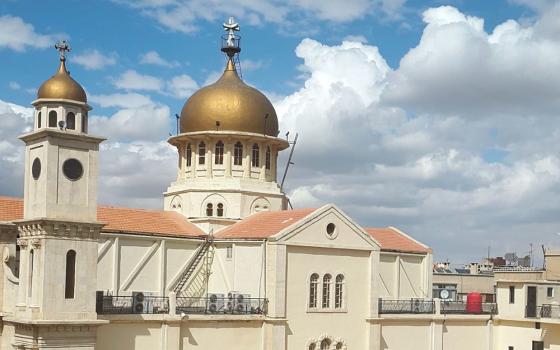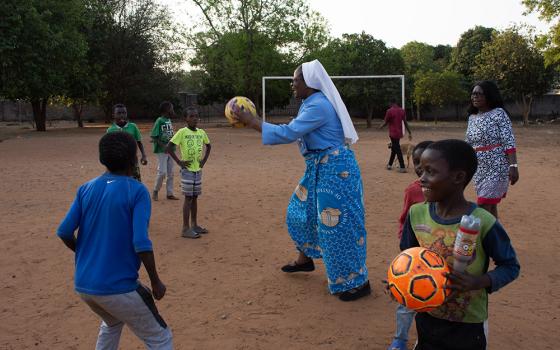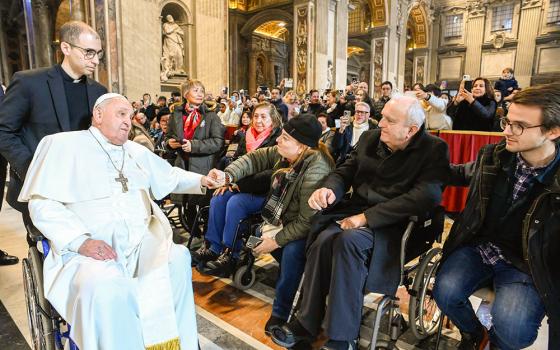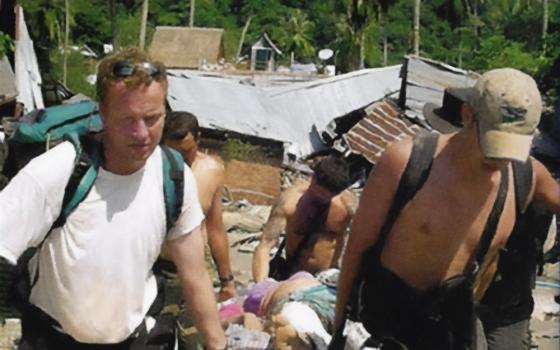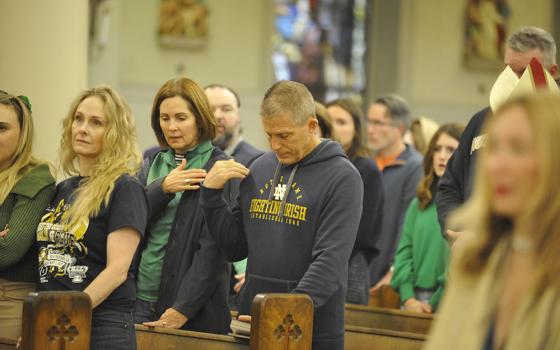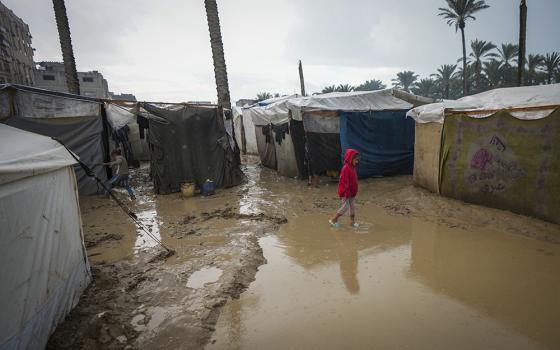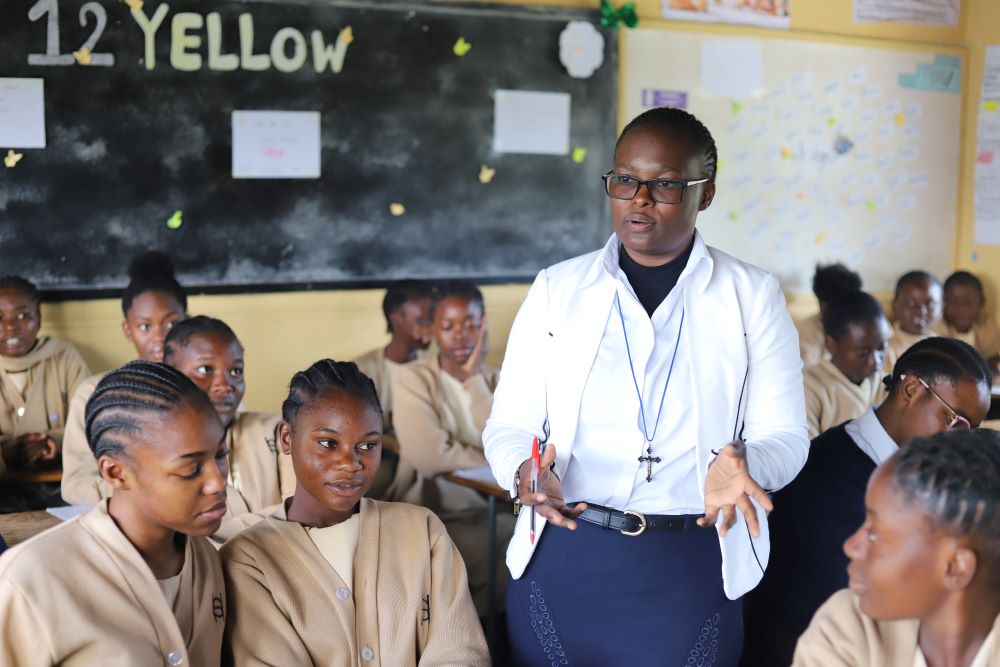
Sr. Angela Ngwenyufu, a member of the Handmaids of the Blessed Virgin Mary, interacts with her students at St. Patrick's Secondary Girls School in Lusaka, Zambia, on May 25. Through ASEC's Higher Education for Sisters in Africa program, Ngwenyufu earned a degree in education. (GSR photo/Doreen Ajiambo)
Religious sisters in Africa are vital pillars of their communities. They are among the most trusted people on the continent. They operate schools, manage health clinics, lead vital social and economic programs, and care for the vulnerable and elderly.
Yet despite their significant contributions, accessing higher education had been a challenge for many sisters, limiting their ability to have a broader impact.
In Lesotho, for example, Sr. Theresia Ntsoaki Noko, a member of the Sisters of Charity of Ottawa, was appointed in 2003 by her congregation to lead the Elizabeth Bruyere Old Age Home in Leribe, a town in the northeast part of the country.
Noko was excited about the opportunity. But her lack of formal education hindered her ability to fully understand and cater to the needs of the dozens of elderly clients she served.
To remedy this, she underwent training in leadership management, computer skills and finance in 2015 — the same year she learned from her superior general about a program to do that very thing.
The training came from funding from the African Sisters Education Collaborative, or ASEC, started in 1999 by four U.S.-based religious congregations and four affiliated colleges.
Its mission: to address the lack of education among African religious sisters and non-African sisters working on the continent. The program "filled a gap and addressed an issue that no other organization dared to — supporting the education of sisters in Africa," said former ASEC director Sr. Jane Wakahiu, a member of the Institute of the Little Sisters of St. Francis.
'We're fighting for dignity, and restoring the face of God in the poor, the marginalized.'
—Sr. Draru Mary Cecilia
The program is based on the campus of Marywood University, a Catholic school in Scranton, Pennsylvania, and is celebrating its 25th anniversary this year. As it looks ahead, ASEC sees its impact, so widespread in Africa, being replicated in other continents. But it also faces new challenges as it expands its programs.
During the last quarter century, ASEC has changed the narrative for thousands of sisters and the communities they serve, and became a catalyst for needed change in 10 sub-Saharan African countries in which it operates. (It added an 11th country, Zimbabwe, this year.)
The organization's goal is to empower sisters through education, equipping them with the tools and knowledge to enhance their effectiveness in their ministries. Through programs in leadership, health care, education and social services, ASEC has made a tangible difference in the lives of many sisters and their ministries.
"Education is a powerful tool," said Sr. Draru Mary Cecilia, ASEC's executive director. "By educating sisters, we are enhancing their capabilities and uplifting entire communities." This is particularly the case for the vast majority of sisters who serve on the margins of society, Draru explained in interviews with Global Sisters Report.
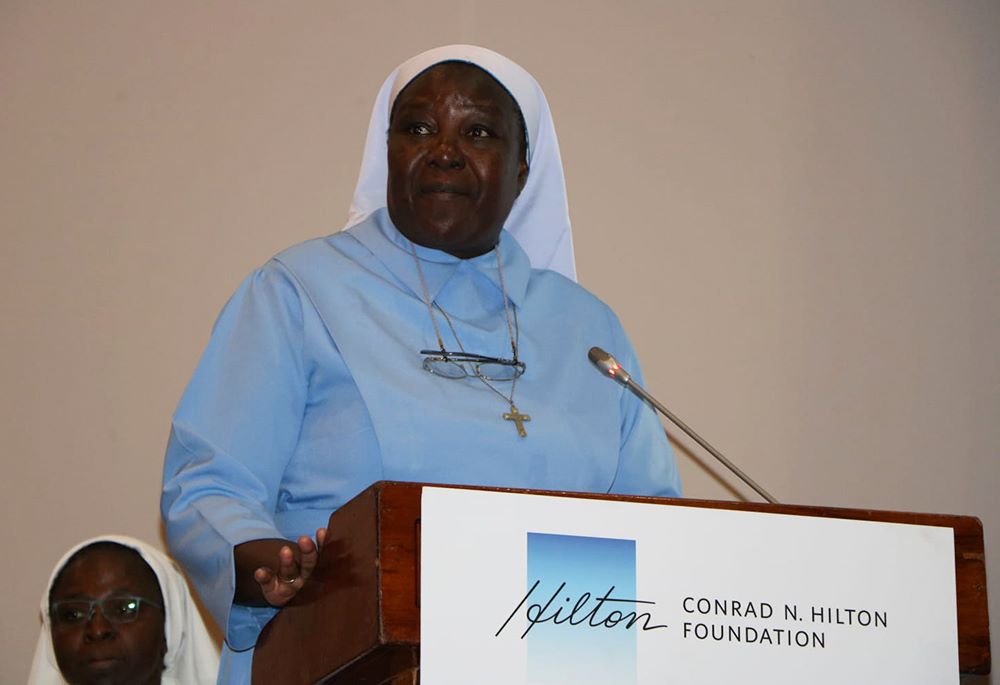
Sr. Draru Mary Cecilia, ASEC's executive director, addresses people during the Conrad N. Hilton Foundation convening on May 30 in Lusaka, Zambia. She said ASEC's educational programs help sisters uplift entire communities in Africa.(GSR photo/Doreen Ajiambo)
Highly trained Catholic sisters look for the "desert" areas to develop rather than going for "greener pastures," as is the case with many professionals, she said. Catholic sisters' unique motivation of service "is based on need rather than the amount of money to be earned."
By virtue of their vows and life of service, sisters "bloom where they are planted," Draru said. "They stay and joyfully sustain services in the most difficult and hard to reach rural areas; they go to the margins to serve people who would otherwise not receive assistance."
As of September, ASEC has served more than 10,500 sisters. Some programming also serves lay people, particularly in service learning, which combines academics with a "hands-on" community-based approach. As a result, as of April, ASEC has served a total of 10,785 individuals including sisters and lay people.
Draru said that participants in ASEC programs are not only sisters of African origin or indigenous to Africa. It also has trained Catholic sisters who are on missions to Africa but are originally from the Americas, Asia and Europe.
The education spans levels from high school to university. Those who received training now work supporting their communities by improving the quality of education in schools, enhancing health care services, or initiating development projects that address local needs.
ASEC alumnae are also strengthening their congregations internally in such areas as budgeting, grant writing and program evaluation.
"ASEC has equipped thousands of sisters with the skills and knowledge needed to address pressing issues in their communities," said Draru, a member of the Little Sisters of Mary Immaculate of Gulu in northern Uganda.
While it is important that sisters' own talents and skills be developed and affirmed with proper academic credentials, ultimately the focus is not about the sisters, Sr. Nancy Kamau, ASEC's director of development, said in an interview. "It's about what the sisters do with the education they will receive," she said.
ASEC's programs have been primarily funded by the U.S.-based Conrad N. Hilton Foundation, which also supports Global Sisters Report. The foundation backs the apostolic works of Catholic sisters worldwide as they serve underserved populations.
The collaborative also receives support from its founding congregations and institutions. Draru said that the founders support ASEC "holistically" through governance and financial support. Funding also comes from individual and institutional donors, particularly in the United States and Canada.
ASEC is now seeking long-term sustainability and "entering the fundraising market" with annual appeals and, this year, with several 25th anniversary events as capstones for the jubilee year. (A jubilee dinner was held Oct.3 in Washington, D.C.; a gala event is scheduled for Dec. 7 in Philadelphia.)
"The bigger vision is for ASEC to be a sustainable organization with a proven capacity to collaborate, develop and deliver educational programs that strengthen the capacity of women religious in Africa," Draru said.
With an enlarged vision and 25 years of accomplishment, there is much to celebrate.
Sister of St. Joseph Carol Jean Vale was president of Chestnut Hill College in 1999 and was one of the "founding mothers" of ASEC. She also served as ASEC's board chair 2015-2017. Vale will be one of the honorees at the Dec. 7 gala event. (The other will be Sr. Anne Munley, a member of the Sisters, Servants of the Immaculate Heart of Mary and who served as ASEC's first executive director.)
In an email, Vale told GSR that she is proud that ASEC "has touched a multitude of lives in a relatively short span of time," noting that the "reach and scope of the projects undertaken is far more than originally envisioned."
Vale praised ASEC's past and present administrative leaders as "one of our greatest successes," as is the opportunity to work with Catholic universities in Africa on site so that sisters do not have to travel to the United States for their education.
This was part of the original vision, Vale said, because offering degrees in Africa makes it possible to educate more sisters "quickly to address the pressing needs within their countries. This they are doing with incredible energy and an unwavering commitment."
Helping the SDGs
ASEC's efforts to educate sisters also has a larger impact, staff members say, as the service of the Catholic sisters helps Africa achieve the United Nations' 17 sustainable development goals, which seek to end poverty and promote human dignity.
Those in the teaching profession, for instance, are helping with the goal of providing quality education (SDG goal 4), and work with girls and young women helps promote gender equality (SDG 5). Efforts to eradicate poverty, hunger, promote decent employment and economic growth help achieve at least four U.N. goals: SDG 1, 2, 8 and 10.
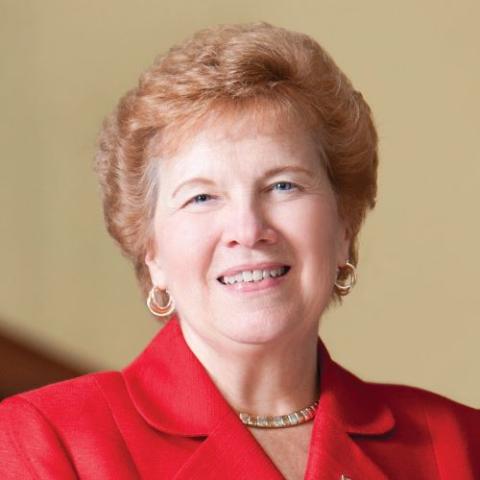
St. Joseph Sr. Carol Jean Vale, who was president of Chestnut Hill College in 1999, was one of ASEC's "founding mothers." (Courtesy of Chestnut Hill College)
A specific example of SDG 3 — the promotion of good health and well-being — comes from Zambia, where Sr. Mindoza Mambo of the Sisters of Mercy of St. Charles Borromeo and a recipient of the ASEC Scholarship Program, is working to improve palliative care for the dying.
Such care is needed in Zambia, given high levels of HIV infection and overall disparities in health among Zambians.
As an ASEC profile of Mambo explained, the sister had a secondary education but no professional experience. The ASEC scholarship allowed her to attend the Lusaka Apex Medical University in Zambia, and she graduated with a diploma in physiotherapy technology in September 2022.
Since obtaining that degree, Mambo works at the Mother of Mercy Hospice and Health Centre, run by her congregation in Chilanga, Zambia.
The center, the profile said, opened its doors in 1997, becoming one of Zambia's first hospices. As a physiotherapist, Mambo "works to provide palliative care to those in need in order to 'celebrate the beauty of life and affirm dignity to the dying.' "
Her hard-earned diploma, she said, is an example of ASEC helping serve the most vulnerable, and has allowed her to "confidently and competently serve the people of God," she said.
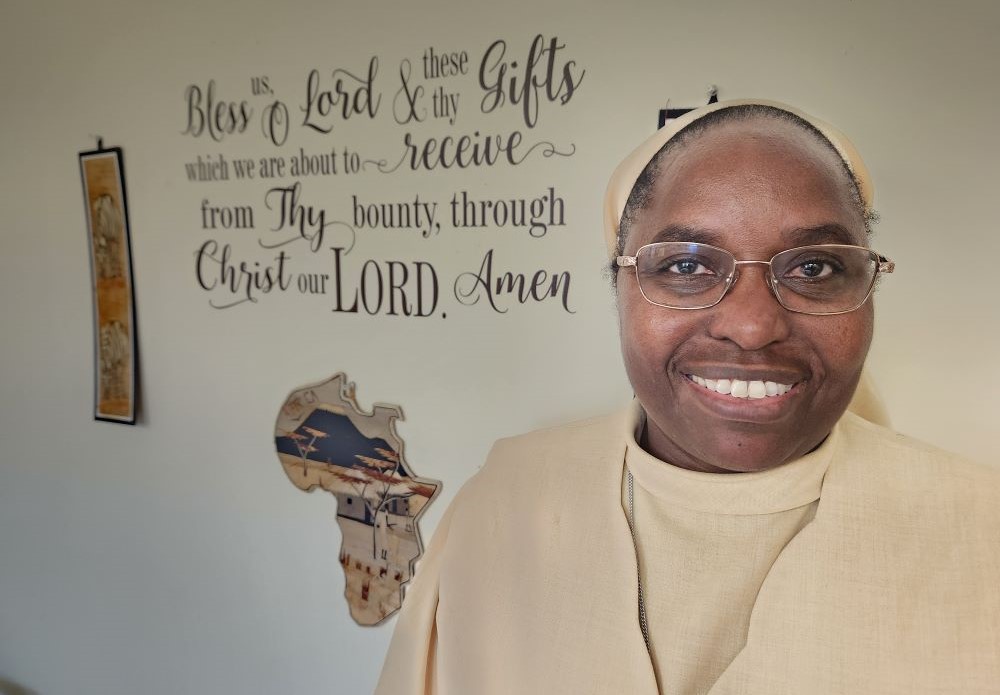
Sr. Nancy Kamau is director of development for the African Sisters Education Collaborative. Religious sisters, she said "are the social face of the church — both by helping communities and in many cases, teaching the faith." (GSR photo/Chris Herlinger)
In such ways, a deeper theological and spiritual need is at work, Draru said. Sisters are helping make the Kingdom of God more present in African communities. "We're fighting for dignity, and restoring the face of God in the poor, the marginalized," said Draru, who has served as ASEC's executive director since 2017.
The church's social face
Noting that sisters are "mission-driven" and go where they are sent, Kamau said, "they are the social face of the church — both by helping communities through the services they provide, witnessing to God's love of all and teaching the faith."
Many sisters in Africa serve in rural, hard to reach isolated areas, and areas torn by conflict and war and are themselves at personal risk, Kamau said. "But they don't leave, they don't quit — they continue to serve. It's Christ's mission. "
In fulfilling that mission, the sisters who have benefitted from ASEC programs have become beacons of hope, as Noko's experience illustrates. With educational and financial support from ASEC programs, Noko — who learned of ASEC funding through her congregation's superior general — provides care, comfort and community to those who need it most. The home currently accommodates about 20 people.
"Running the Elizabeth Bruyere Old Age Home was a challenge for me as I lacked the necessary knowledge and skills," she said.
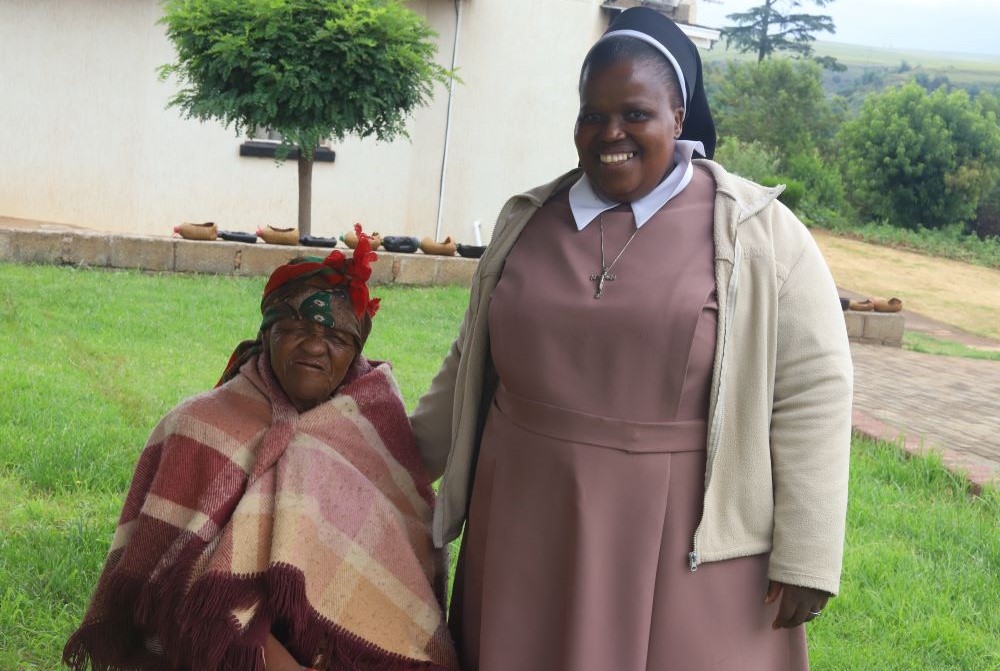
Sr. Theresia Ntsoaki Noko, a member of the Sisters of Charity of Ottawa, interacts with an elderly person at the Elizabeth Bruyere Old Age Home in Leribe, a district in the northern part of Lesotho on March 3, 2022. (GSR photo/Doreen Ajiambo)
But Noko's newfound expertise has transformed the facility. A leadership management course, for example, provided insights on managing people, conducting effective meetings and resolving issues. She also learned how to draft proposals and raise funds for the facility.
As a result, the facility has become financially self-sufficient, with resources to support the elderly residents, she said. Residents craft items such as rosaries and beaded table mats for sale. Proceeds generate additional income for the home.
Fundraising efforts have allowed Noko to purchase wheelchairs for clients. The home also operates a farm to produce food. Noko, who has been a religious sister for over two decades, added that the ASEC-funded training gave her the skills and confidence to provide better care and create a nurturing environment.
Her compassionate approach has improved the quality of life for many individuals and inspired others in the community to volunteer and support her initiatives. "Seeing the smiles on these people's faces and knowing I am making a difference is incredibly fulfilling," she said.
A 25-year history
The road to making a difference like that stretches back nearly three decades.
Though ASEC dates from 1999, the roots of the mission go back to at least 1995 when sisters in Africa and the U.S. began discussing ways to improve sisters' access to education — particularly since the introduction and widespread use of computer technology were about to change education and the workplace. Another factor: schools, hospitals and other African institutions began requiring more certifications.
ASEC's formal start came in 1999 when eight founding institutions, — or more commonly referred to, corporate institutions of ASEC (Chestnut Hill College and Sisters of St. Joseph Philadelphia; Marywood University and Congregations of the Sisters, Servants of the Immaculate Heart of Mary; Rosemont College and Society of the Holy Child Jesus; Neumann University and Sisters of St. Francis of Philadelphia) — met to form ASEC.
Draru said the institutions continue their support and remain "integral components of the organization's structure today." The presidents and leaders of each corporate institution are members of ASEC's board of directors, "providing governance of ASEC at the highest level," she said.
At the offices in Marywood, staffers work in a one-story building that could pass for university offices anywhere. But inside, a visitor is immediately greeted with pieces of African art, which symbolically connects a college administrative building to the work a continent away.
The ties between programming in the U.S. and in Africa have long been important. It grounds the experiences of the thousands of sisters who have completed trainings with the vision of ASEC's founders and current staff and board.
In Zambia, Sr. Angela Ngwenyufu, a former participant in the Higher Education for Sisters in Africa (HESA) program, benefited from acquiring a degree in education through a scholarship sponsored by ASEC. She now teaches at St. Patrick's Secondary Girls School in Lusaka, the capital of Zambia.
"This opportunity has opened doors I never thought possible," said Ngwenyufu, a member of the Handmaid Sisters of the Blessed Virgin Mary. "I can now approach challenges in my school with new perspectives and solutions. I have worked hard, using the knowledge I acquired, to ensure students' performance improves."
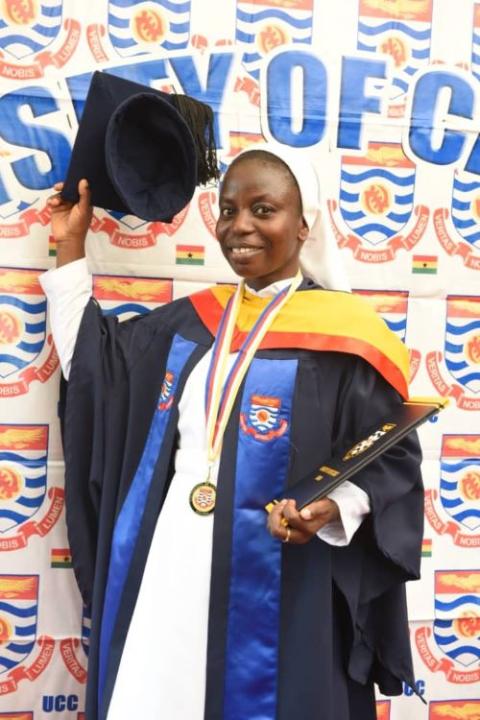
Sr. Mavis Ackaah Mensah, a member of the Society of the Infant Jesus, is pictured during her graduation after an ASEC-sponsored course. (Mavis Ackaah)
Such testimonies are significant. But ASEC staffers say there is more to be done.
Draru pointed out that despite the organization's successes, there are still challenges that need addressing. She highlighted the need for improved access to education in parts of Africa and the ongoing concern about funding these initiatives.
"The main challenge that ASEC faces is the increasing number of sisters waiting to join our three major programs," she said. "The growing number of vocations in Africa is a blessing, but the limited resources of local congregations of women religious are insufficient to meet the significant need for higher education and capacity building for their sisters."
Approximately half of applicants to all programs are accepted, Draru said recently. The HESA program, for example, has a 53% acceptance rate, Darue said. ASEC admitted 1,102 sisters out of 2,092 applications received over the last four years.
At the same time, she said that ASEC is aware "that program demand is growing and acceptance into our programs is becoming more competitive." The current acceptance rate for the HESA program, for example, is anticipated to be less than 50%.
With the expansion of these programs, ASEC relies on a staff of 13 in the U.S. and 20 in Africa.
The cumulative expansion of all of these programs, say ASEC staff members, is a testimony to the work of the sisters, but also to how ASEC is perceived in the countries where it works.
"We're a trusted and reliable organization and that has helped us to grow," said Shaver, the program manager, though she added that the sisters' connections and support for each other have also helped ASEC expand. "Our networks are the key to ASEC," she said, as are partnerships with educational institutions."
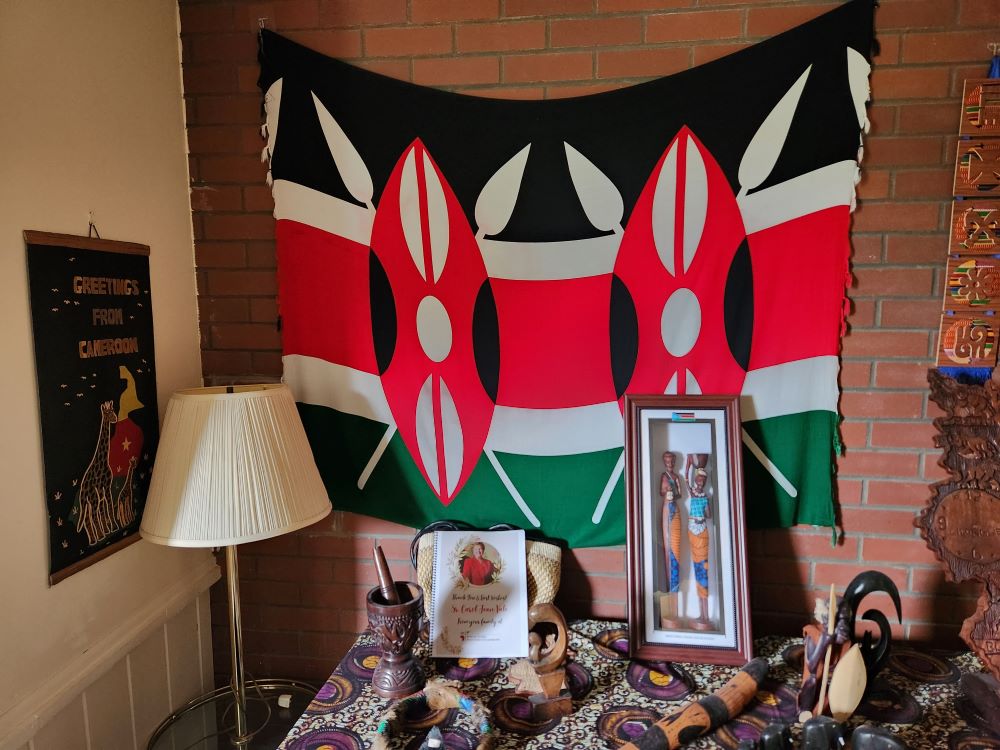
African art decorates the offices of the African Sisters Education Collaborative, or ASEC, located on the campus of Marywood University in Scranton, Pennsylvania. (GSR photo/Chris Herlinger)
But with growth has come change — and challenges.
If, as Draru said, ASEC is constantly "unfolding, unfolding, unfolding" and is true to its prophetic vision, it must be flexible and willing to adapt to change.
Draru said the work and effect from ASEC training are becoming global, as sisters from Africa are being called to missions in other countries, including India and Australia.
"The African sisters are not only expanding their mission in other countries but are members of international congregations as well," she said. ASEC's impact "extends beyond the continent of Africa through the alumnae and the people they mentor and serve," she added.
By the nature of their mission, ASEC alumnae "are deployed to missions in any part of the world to serve." In addition, ASEC alumnae serve in the congregations' leadership teams and are members of the Leadership Conference of Women Religious in the United States.
Their work in those locales, as well as continued work in Africa, touches on a host of issues: domestic violence, homelessness, the challenges street children face, the problems refugees encounter.
Sisters themselves have become refugees, Draru noted, and when that happens, "a sister is not just a refugee; she is a serving refugee." But wherever sisters are, it is better that they be trained, and exposed to education. "You need to be creative because you never know what the next challenge will be."
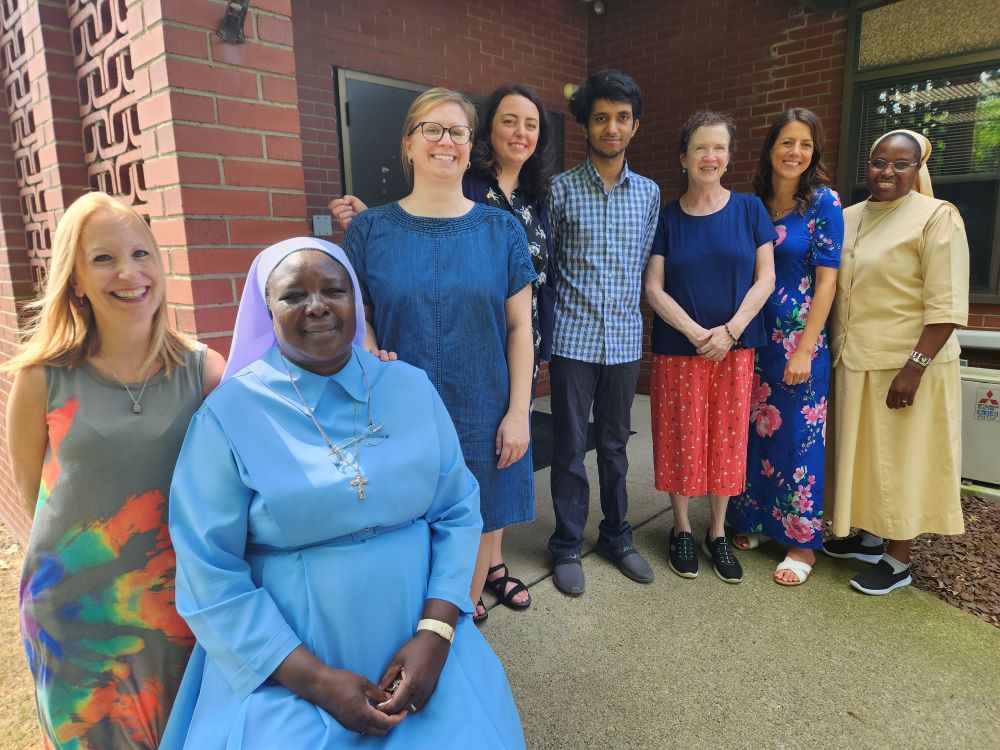
Sr. Draru Mary Cecilia, ASEC's executive director, foreground with the-then African Sisters Education Collaborative staff outside the ASEC headquarters at Marywood University in Scranton, Pennsylvania, in 2023. (GSR photo/Chris Herlinger)
One area where Draru believes ASEC has helped is in sisters' relationships with bishops and other members of the church hierarchy. They have sometimes attended ASEC graduations and believe that better-educated sisters can help strengthen the church's mission.
"As ASEC continues its work, the organization is optimistic about the future," she said. "Plans are in progress to broaden programs and provide more opportunities for sisters across Africa. The goal is not only to provide education, but to create a network of empowered religious women who can lead their communities towards a brighter future."
Mentorship is built into ASEC programs. One objective of the leadership and development program is to assist alumnae to "become lifelong learners, educators, mentors and leaders who use their acquired skills and knowledge," Draru said.
Sisters Leadership Development Initiative (SLDI) participants receive training on mentorship and are expected to mentor at least three other sisters, Draru said, though they often mentor more than three individuals, often including lay colleagues and students. SLDI alumnae reported mentoring 29,596 individuals through groups, training, and one-to-one sessions as of April.
ASEC alumnae also stay connected with each other, participating in annual alumnae workshops in each of the African countries where it operates on topics based on the unique needs of sisters in those ministries and countries.
The nature of workshops has changed in recent years, with the pandemic causing ASEC to increase the use of online meeting and learning platforms for its annual workshops, Draru said. Online workshops also enable sister alumnae to participate in workshops outside their home country.
'[Sisters] are the social face of the church — both by helping communities and in many cases, teaching the faith.
—Sr. Nancy Kamau
So far this year, 1,269 ASEC alumnae participated in 22 alumnae workshops in 10 countries, Draru said.
Strengthening the church's mission was one of many themes Draru and other ASEC staff members addressed during a recent partners workshop in Tanzania. It was a time for ASEC to ask how the SLDI curriculum can be improved and updated "to reflect common challenges that sisters are facing in today's society."
"They have better skills now to do church ministries, to fulfill the church's mission to evangelize and to build the kingdom of God on earth, to make God known," Draru said. For sisters in Africa, she said, the most pressing question is, "How do we improve the lives of people?"
ASEC's answer: Much depends on Catholic sisters becoming better educated.
Share your ASEC stories
GSR created a questionnaire for graduates of ASEC programs to tell their stories and to share the ways that ASEC has impacted their lives, to be completed by Dec. 31, 2024. We will use the responses to populate our interactive map, found below, and write a story comiling some of the responses. To participate, please fill out our questionnaire here.
Editor's note: Some quotes have been updated to include more information.


